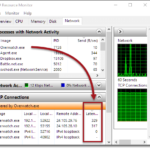If you’re into gaming, you might have heard about NAT Boost and Quality of Service (QoS). They both help make your online gaming better (usually by reducing latency and ensuring smoothness of packet transfer), but in different ways. Sometimes, you can’t use them at the same time. This guide will talk about what NAT Boost and QoS do, how they affect your games, and why you might need to pick one over the other.
Also see: 30+ Windows 11 Services to Disable for Gaming Performance
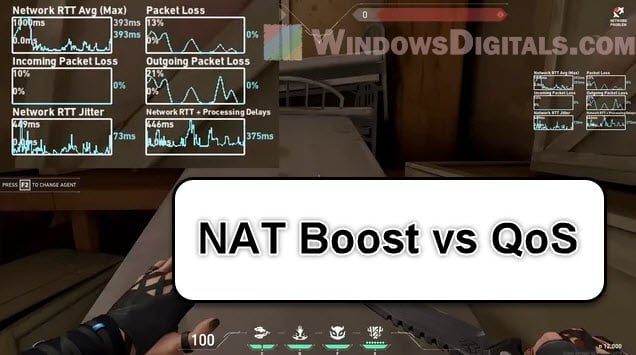
Page Contents
What is NAT Boost, and how does it help in gaming?
NAT Boost, or Network Address Translation Boost, is something in your router that makes your network run better, which is very useful for gaming. It’s about making the time it takes for game data to travel back and forth (also better known as latency or ping) as short as possible. This feature speeds up how your router deals with data, so everything moves faster and more smoothly.
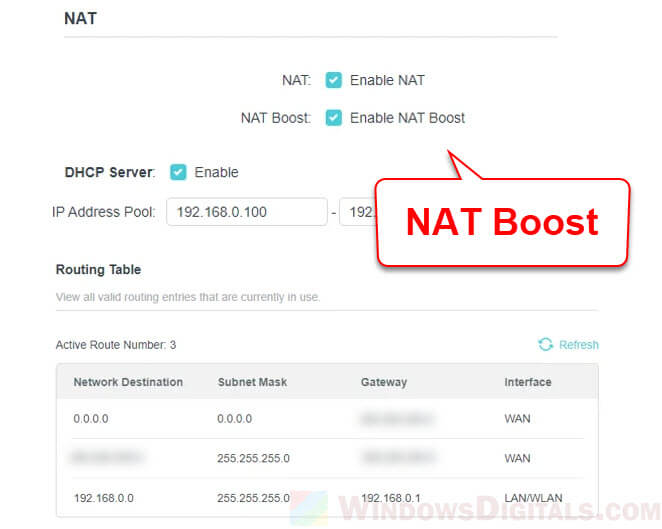
If you play games online and there are a lot of other devices using the internet at home, NAT Boost makes sure your gaming isn’t messed up by all that. It’s great for games that need quick reactions because even a tiny bit of delay can mess up your gameplay.
But, there’s a thing you need to know. You can’t use NAT Boost with some other fancy router features like QoS. That’s because of how NAT Boost works, which doesn’t play nice with the detailed way QoS manages internet traffic.
In short, if you hate waiting and want your games to run smooth without much delay, NAT Boost is something to think about, especially if your internet isn’t being pulled in a million directions by different types of traffic.
Useful guide: How to Check Game Ping with Task Manager in Windows 11/10
What is Quality of Service (QoS), and why does it matter for gamers?
Moving on to Quality of Service (QoS), this feature plays a different but still very important role in reducing lag in your online games. Unlike NAT Boost, QoS focuses on giving priority to certain types of network traffic. For gaming, this means making sure the data packets that show what you do in the game and how the game reacts get priority over other data like downloading files or streaming videos.
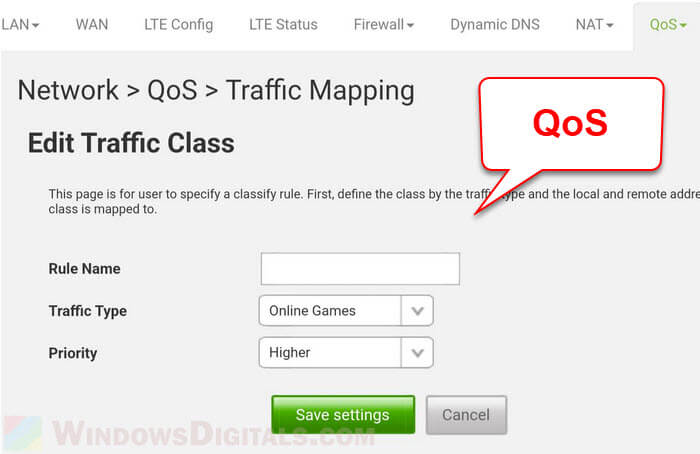
The main purpose of using QoS for gamers is that it can manage network traffic very well when many devices are used at the same time. In a home where others are streaming, downloading, or also playing online games, QoS can keep your game running stable and lag-free. This is done by giving your gaming traffic more importance, which stops your game from lagging because someone else is watching a HD movie or on a video call.
Also, you can set up QoS to recognize and give priority to traffic from gaming consoles or PCs specifically. This is especially useful if you share your network with others who use the internet differently.
But, QoS isn’t always perfect though. How well it works still depends on the total bandwidth your Internet Service Provider (ISP) provides. If your total bandwidth is low, QoS can only help so much. Also, setting up QoS is more complicated than turning on NAT Boost, as you need to dig into your router’s settings and set priorities based on your needs.
Therefore, if your gaming often gets interrupted by other devices and apps, and you want to make sure your gaming traffic gets priority, you should try enabling and setting up QoS.
Pro tip: How to Know Which App is Using The Internet in Windows 11
NAT Boost vs QoS, which is actually better?
Many gamers often struggle to decide between NAT Boost and QoS because you usually can’t have both on most routers. They handle network traffic in very different ways. Below are some things to think about to help you decide.
How your network is used
- If you have a fast internet connection and not much traffic, NAT Boost might be better. It speeds up your network, reducing delays which is important for quick online games.
- If your network often gets busy with different kinds of traffic, QoS might help more. It lets you put gaming traffic first, which reduces unnecessary lags and stutters.

What you need in your games
- If you play competitive games where every little delay matters, NAT Boost could give you the edge by cutting down on lag.
- For more laid-back gaming, especially if it’s not too sensitive to delays, QoS’s ability to prioritize might be better, especially if there’s a lot of other stuff happening on your network at the same time.

Worth reading: How to Limit CPU Usage of a Process in Windows 11
Check your router capabilities
- Check your router’s features. Some newer routers can handle both NAT Boost and QoS at the same time, but this isn’t common.
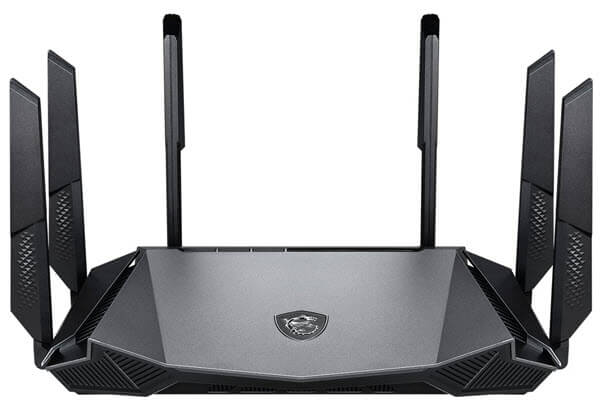
Personal preferences
- NAT Boost is usually simpler to set up and use. Once it’s on, you don’t have to think much about it.
- QoS gives you more control to set things up just how you need, but it might need you to know a bit more about how networks work.
